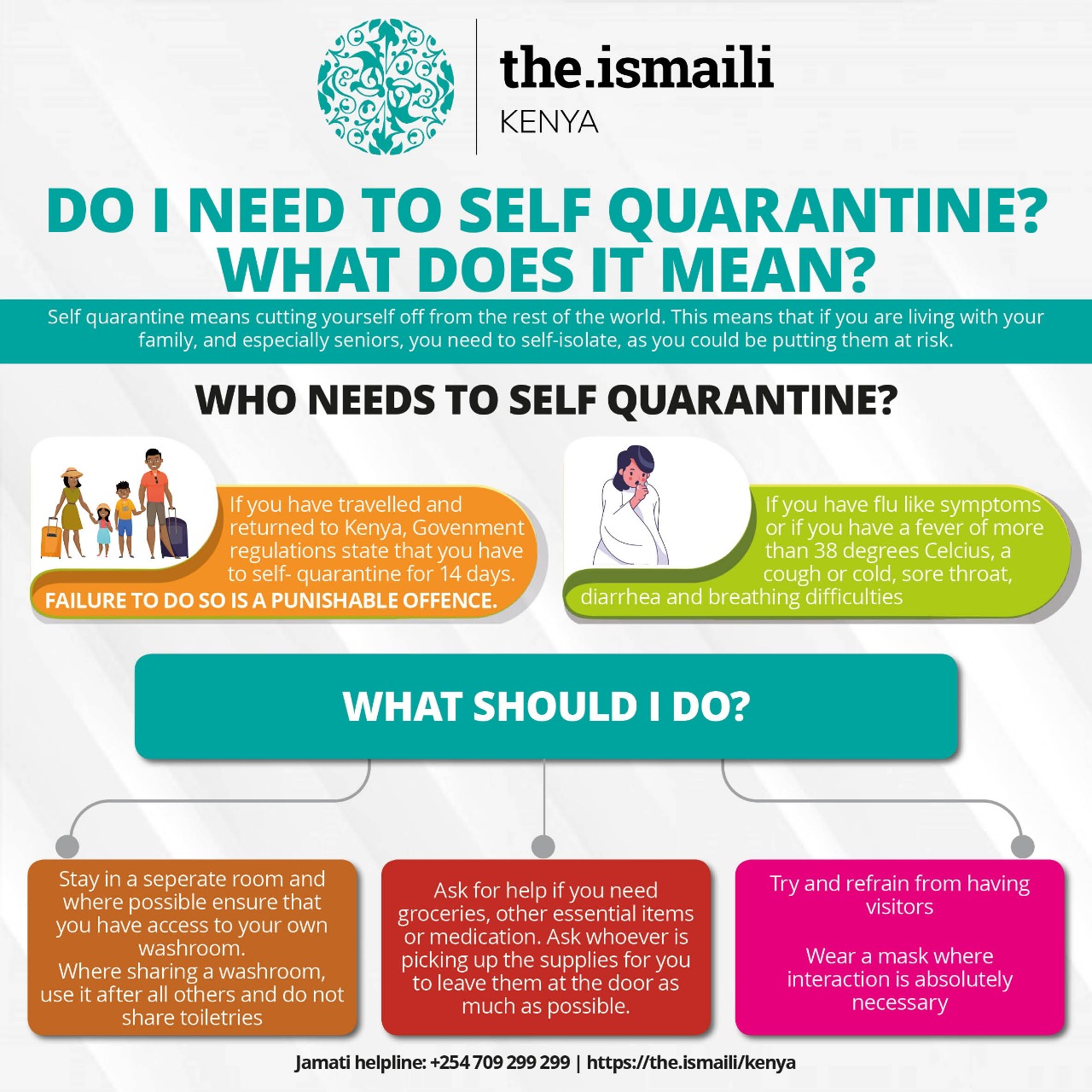Isolation and quarantine are public health practices used to protect the public by preventing exposure to people who have or may have a contagious disease.
Isolation separates sick people with a contagious disease from people who are not sick.
Quarantine separates and restricts the movement of people who were exposed to a contagious disease to see if they become sick. These people may have been exposed to a disease and do not know it, or they may have the disease but do not show symptoms.
During a period of self-isolation, you need to stay at home, not go to work, school or other public places, and avoid public transport or taxis.
If you are living with others, this means that you need to also isolate yourself from them, especially if they are more vulnerable or at higher risk of infection.
If you are self-isolating:
1. Stay in a separate room, and where possible ensure that you have access to your own washroom.
2. Where sharing a washroom, use the washroom after all others, and do not share toiletries.
3. Avoid sharing household items, including utensils, towels and bedding. Wash these items thoroughly after use.
4. Ensure the surfaces in the household such as tables, doorknobs, phones and other electronics, and any other surfaces that come into contact more often, should be thoroughly cleaned or disinfected.
5. Ask for help if you need groceries, other shopping or medication. Ask your friends, family, or delivery company to leave supplies at the door where possible. Limit contact as much as you can.
6. Do not have any visitors over.
7. Wear a face mask if you must be around other people.








